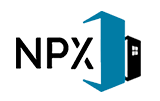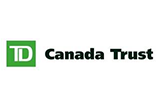
The Bank Act was modified in 1954 to permit banks to offer residential mortgage loans, but there was a cap on the interest rates they could charge. By 1967, the Bank Act had been changed once more, and practically overnight, banks had taken over as Ontario’s main provider for mortgage financing. With inflation on the rise in the 1970s, mortgages were altered into the products we recognize today. As interest rates rose, lenders and borrowers found themselves trapped in fully amortized loans that did not account for changes in interest rates. The banking institutions controlled the mortgage market in the 1970s by providing typical mortgage products, such as amortizations of 25 years, fixed rate durations of 5 years with monthly payments, and repayment plans. If a borrower desired a low-interest mortgage, they would obtain it from their bank.
Since all of the banks’ lending requirements were essentially the same, if the bank turned down their application, other banks would do the same. For consumers at the time, the mortgage brokerage industry was not always very advantageous. Mortgage brokers would often charge a fee and offer the borrower a private mortgage with higher interest rates.
If you have any questions in regards to retirement savings please give us a call to speak with one of our mortgage specialists at (416)621-7501.











